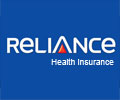Utilization of Health Insurance Products and Services by a Consumer
Making usage of Health Insurance Plans
How to Get the Most from Health Insurance Plans?
An individual can get the best healthcare products and services if he/she adheres to the following:
- Stay informed; read the concerned health insurance policy purchased by yourself and member handbook. Make sure that all the contents including various terms and definitions have been understood by the policyholder, especially the information regarding benefits, policy coverage, exclusions and limits. It must be kept in mind that Sales promotional materials or health insurance plan summaries for marketing/promotion/advertising/sales purposes cannot give a detailed picture about the healthcare product or service.
- Check whether the health insurance plan availed by yourself has a magazine or product booklet or a newsletter. It can be a good source of information as to how the plan works and regarding the important aspects in the health plan that affects healthcare aspect of an individual.
- Discuss with the health benefits officer to learn more about the health insurance policy cover.
- Ask how the health insurance plan will notify an individual regarding changes in the network of healthcare providers or covered services while the individual is part of the plan.
Management of a Policyholder’s Healthcare Aspects
- It is recommended to ask an individual’s family physician or doctor regarding regular screenings to check an individual’s health.
- Discuss the risk of contracting certain medical conditions arising due to complications. Note down the lifestyle choices and changes that needs to be made to lower or minimize the risks of preventing a particular illness.
- Ask relevant questions and insist on clear, well defined answers, from your concerned physician.
- Discuss about the risks and benefits pertaining to laboratory tests and treatments.
- Discuss with your physician regarding the likes and dislikes pertaining to healthcare services, so that the physician understands an individual’s concerns and is well aware about his/her requirements.
- Make sure that the doctor's instructions are understood and followed by the concerned person. An individual has the freedom to bring with himself/herself another individual so as to take notes in order to help the concerned individual and make him/her understand things in a better manner.
Keeping Records
It is of utmost importance to maintain all medical records – past and present in an orderly format punched together and neatly arranged in a file. Maintenance of medical records is of utmost importance for easy retrieval of medical records for verification purposes and establishment of proof regarding medical treatments. Moreover, by maintaining medical records, disputes regarding insurance and medico-legal cases can be avoided to a great extent.
Similarly replicate this method for other family members including your dependants. As a result, the healthcare processes can be easily monitored as and when required by an individual. The medical records should incorporate presenting symptoms in an individual, personal history, past medical history, family history, details regarding vaccinations, illnesses, treatments taken and hospital visits. It is always recommended to ask for duplicate copies of laboratory reports. It is always recommended to maintain a list of drugs or medicines to which an individual is allergic by making a note of side-effects and adverse drug reactions.
Availing Healthcare Facilities
For availing the desired healthcare facilities, an individual must know what to expect from his/her health insurance plan as well as how the policy works including the processes involved in it should be known by the concerned policyholder. For availing healthcare facilities provided by doctors and Para-medical staff, hospitals and other healthcare service providers under the Health Insurance Policy, the information pertaining to questions enlisted below must be know which are as follows:
- When do the offices/clinics open? What are the official working hours of clinics, laboratories, pharmacies and other healthcare service providers? How to proceed incase medical assistance is required after the official working hours?
- What is the procedure involved in making appointments? How soon can it be expected by an individual to be checked by the treating consultant for seeking medical advice incase of any illness or for routine follow-up?
- If laboratory tests are required, where would the samples be collected in doctor's clinic or at a clinical laboratory?
- Would most of the appointments be taken care by the primary care doctor or the family physician? In addition, would medical assistance be provided by the nurses or physician's assistants in absence of a physician?
- Are there facilities available for an online medical advice hotline? Some health insurance plans have toll-free phone services or hotline facilities that help their members decide regarding the tackling of health-related problem that may not require a visit to the doctor.
- It is necessary to enquire regarding how an individual’s health insurance plan provides healthcare facilities outside the ambit of the service area and the steps to be initiated for availing the healthcare facilities available under the existing healthcare plan of a particular individual. This point is of much significance especially when an individual travels frequently or is away from home for long period or an individual is transferred to a remote location.
Approaching the Hospital for Medical Facilities
It is important as a policyholder to know regarding the healthcare facilities available at various hospitals or nursing homes provided under an individual’s health insurance plan in advance before actually availing such health products and services. This can be further categorized into two groups namely:
a) Planned Hospitalization
Unless an individual’s ailment is a medical emergency, prior approval will be given by the primary care doctor regarding advance approval or pre-authorization (pre-admission certification) to the concerned hospital to approach the hospital for availing the medical facilities. If advance approval or pre-admission approval is not availed by your physician the cost of hospitalization care may not be covered. For this purpose, the following questions should be asked by the concerned policyholder as enlisted below:
- Which hospitals are incorporated under the Empanelment List or health insurance network plan?
- Are there any limits or restrictions regarding the duration of stay in the hospital?
- Who decides when the patient is to be discharged?
- Will post-hospitalization care or follow-up care be covered under the plan?
- Will domiciliary treatment (or home-treatment) be covered under the health insurance plan?
- If an individual is suffering from a serious ailment, will the healthcare service provider depute someone to oversee his/her care and make sure that the patient’s needs are met?
- How does an individual’s health insurance plan handle the aspect of getting a second doctor's opinion regarding requirement of surgery or modification in treatment procedures or course of medical treatments. It must be known to the policyholder whether second opinions are encouraged or not under the health insurance plan, if required by the concerned policyholder? In such cases, who bears such expenses?
b) Emergency or Urgent Hospitalization
If there is a true medical emergency, an individual should not hesitate to approach the nearest hospital as soon as possible, for availing the medical facilities. It is important for an individual to know what kinds of medical ailments are classified as medical emergencies and regarding the procedures involved for arrangement of ambulance service, if required. Under most of the healthcare insurance plans, a customer or policyholder, after securing emergency admission to a hospital may be transferred to a network hospital (or a hospital incorporated under the provider plans) as soon as his/her general condition gets stabilized. Transferring the patient to a network hospital becomes essential especially if that hospital, wherein admission is sought by the concerned policyholder is not a part of the Hospital Empanelment List. For knowing more details regarding Emergency Hospitalization, the following questions must be asked as follows:
- How does the policyholder’s health insurance plan define "emergency care"? What medical conditions, ailments, diseases or injuries are considered as emergencies?
- How does the plan handle "emergency medical care" after the normal business hours?
- How does an individual secure urgent medical attention or hospital care incase, if the concerned individual is out of the area or on a tour or is not residing in that area from where the health insurance policy cover has been taken?
- On account of a medical emergency, what processes are involved for informing healthcare insurance companies or service providers? Upon informing the service providers, what duration would be required to avail the desired medical facilities under the plan?
- "Urgent care" is meant for problems that are not true medical emergencies, but still warrants prompt medical attention. It is always advisable to find out what is considered to be “urgent care” under an individual’s health insurance plan. Examples include sore throats with fever, infections, fractures etc. For this purpose, the concerned policyholder should contact his/her primary care doctor (or family physician) or the plan's hotline regarding advice or suggestions as to how to proceed. Under the healthcare insurance plan, exclusive urgent care centers may be set up exclusively for its members.
Steps involved to over-come lack of customer satisfaction
Getting the best medical care and services depicts as how the entire work-flow involved in ensuring smooth processing of health insurance plans, what rights are conferred on a policyholder and regarding the procedures involved in lodging a complaint, in case if services provided under the plan are of substandard quality or on account of customer satisfaction. As an individual or a policyholder, he/she has the rights of securing additional copies pertaining to laboratory reports including relevant data pertaining to his/her ailment from which he/she is suffering. If an individual is registered under a Managed Care Plan, the concerned policyholder has the freedom and the liberty to ask for a replacement in his/her primary care doctor, incase if he/she is unsatisfied on account of various reasons which is difficult to elaborate, since it is out of the purview of this article. As a policyholder, he/she may be able to switch plans during open enrollment.
Nowadays, majority of the health insurance plans have an appeal process wherein - both the policyholder and his/her physician may utilize the services, incase if there is disagreement with the clauses incorporated under the plan. If the insurance company or health service provider refuses to provide or pay for healthcare services provided under the health insurance policy cover, he/she can file a complaint or register any grievance that he/she feels is unfair and can appeal against such a decision, if required.
A policyholder can contact the member services division under the health insurance plan in which he/she is enrolled for deriving more information or for registration of complain. A policyholder should always maintain and keep the following documentations:
- All correspondences carried out by the policyholder concerning the plan, in an orderly format incorporating the time factor.
- Claim forms and copies of bills, laboratory reports, discharge summary etc
- Making a note of telecom discussions and other correspondences viz. the date and time, the individuals who were contacted, the nature and the topic of discussions and the nature of each call (or correspondence), for better accountability process.




![An Introduction - Indian General [Non-Life] Insurance Companies An Introduction - Indian General [Non-Life] Insurance Companies](https://www.medindia.net/images/common/patientinfo/120_100/health-insurance21.jpg)













